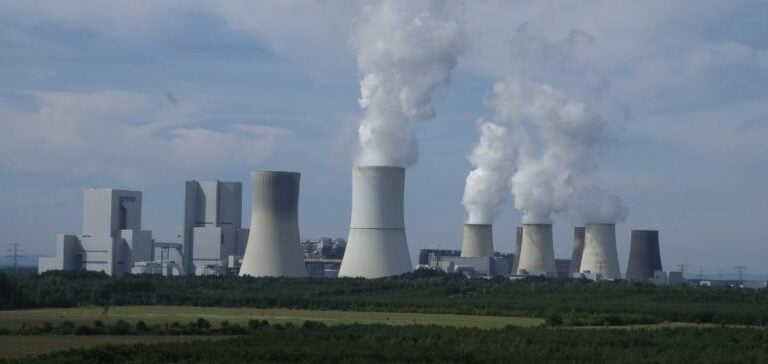Utah Governor Spencer Cox has unveiled a budget proposal of $20 million to prepare the state for integrating nuclear reactors, along with an additional $4.2 million for geothermal energy. These initiatives are part of his energy plan, “Operation Gigawatt,” which aims to double the state’s energy production over the next decade. This strategic vision seeks to diversify energy sources and modernize the energy mix.
This funding, pending approval from the Utah Legislature, would prepare sites for the installation of advanced nuclear reactors, particularly Small Modular Reactors (SMRs). These technologies, currently undergoing licensing with the U.S. Nuclear Regulatory Commission, are considered a key step to enhancing energy security and reducing dependence on fossil fuels.
Focus on Geothermal Energy
Geothermal energy is a cornerstone of this strategy. In 2023, it accounted for 8% of renewable electricity produced in the state, compared to 11% for solar energy. However, these sources are still overshadowed by coal and natural gas, which dominate Utah’s overall energy production. By investing in these resources, Cox’s administration aims to enhance energy reliability while paving the way for more sustainable solutions.
A Distinct Position from Federal Policies
Utah’s strategic direction diverges from that of the Bureau of Land Management (BLM), which prioritizes expanding solar energy infrastructure across 31 million acres of public lands in the western United States. Cox has expressed skepticism about the long-term viability of this approach, arguing that nuclear and geothermal options provide more reliable and state-suited solutions.
Nevada Governor Joe Lombardo shares similar concerns. He plans to challenge the BLM’s solar projects, citing potential negative impacts on local communities and protected ecosystems. These differences highlight growing tensions between federal energy priorities and regional strategies.
An Energy Strategy Rooted in Local Resources
Although Utah currently lacks operational nuclear power plants, it plays a critical role in the sector with the country’s only active uranium ore processing plant. Recently, two uranium mines in the eastern part of the state resumed operations after more than a decade of inactivity, underscoring the strategic importance of this resource for Utah’s energy future.
Through this ambitious plan, Governor Cox seeks to position Utah as a key player in the energy transition, capable of balancing economic growth with environmental commitments. This strategy could serve as a model for other states facing similar challenges in diversification and energy sustainability.






















